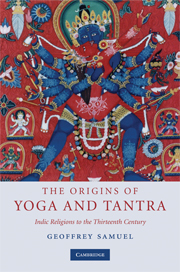PART TWO - TANTRA
Published online by Cambridge University Press: 05 June 2012
Summary
The Tantras – there is hardly any other kind of literature that has met with so much abuse, particularly by those who never read or seriously studied a single line of it; or that has so much fascinated those who on the testimony of misinformed and uninformed people thought the Tantras to be a most powerful, and hence strictly guarded means for the gratification of purely biological urges. Only very few people tried to form an opinion of the Tantras by their own. It is true the Tantras are nothing for those who are so pure in mind and, alas! so poor-minded that they are unable to see that actual life is different from the fantastic and mutually contradictory theories and ideas they have about it; nor are the Tantras meant for those who consider life to be nothing else but a chronique scandaleuse. But since it is easier to follow extremes than to weigh the evidence and to decide upon a middle path, there can be no doubt that these extremists have done great harm to the study and understanding of what the Tantras have to tell. For it is by their verdict – unjustified abuse based upon wilful ignorance and misconceptions about the aim of the Tantras engendered by this ignorance – that the Tantras are nowadays held in contempt and considered to be something depraved and mean. Yet the fact is that the Tantras contain a very sound and healthy view of life.
Herbert Guenther, Yuganaddha: The Tantric View of Life (Guenther 1969: 3)- Type
- Chapter
- Information
- The Origins of Yoga and TantraIndic Religions to the Thirteenth Century, pp. 191 - 192Publisher: Cambridge University PressPrint publication year: 2008
- 1
- Cited by



